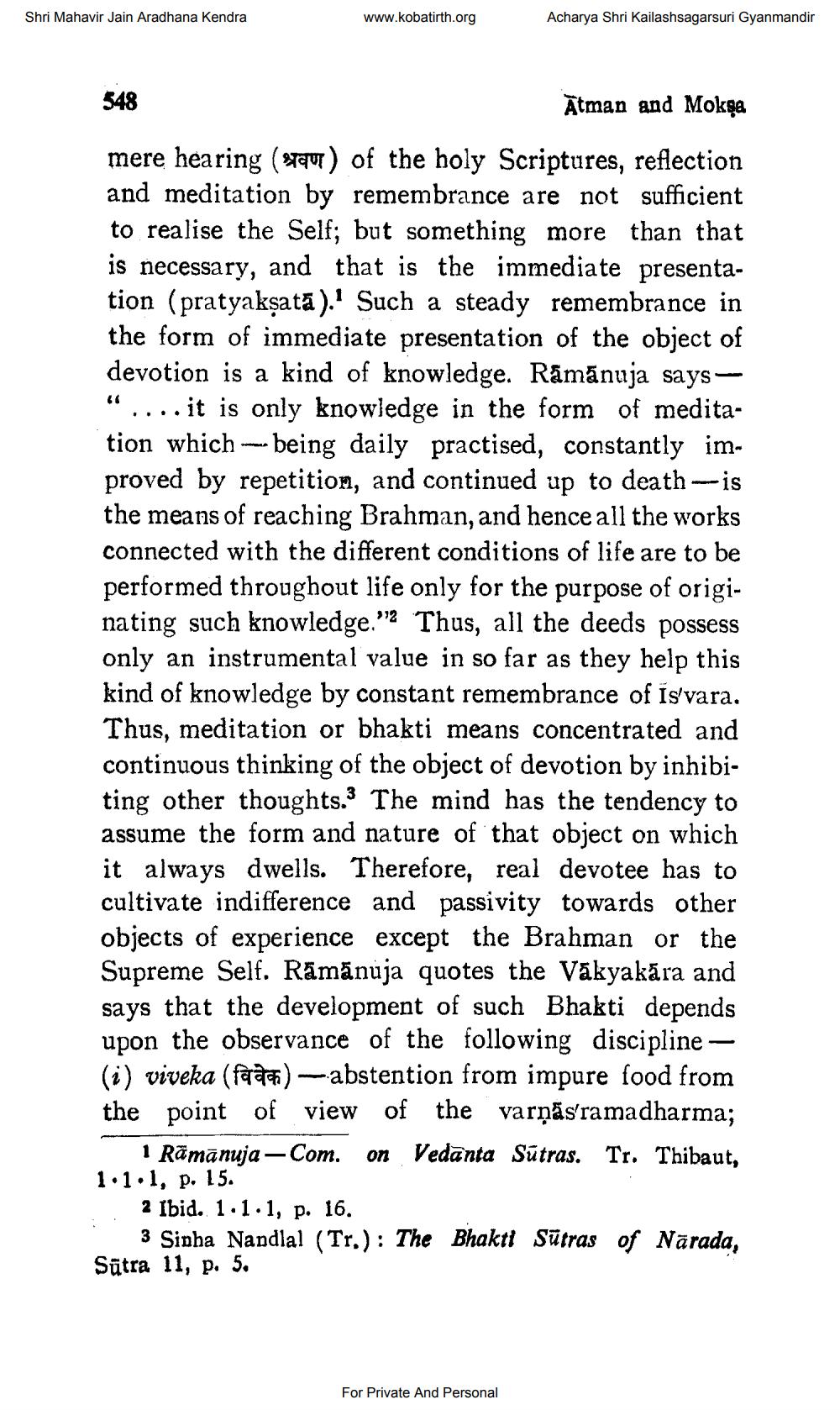________________
Shri Mahavir Jain Aradhana Kendra
www.kobatirth.org
Acharya Shri Kailashsagarsuri Gyanmandir
548
Atman and Mokoa
mere hearing (staur) of the holy Scriptures, reflection and meditation by remembrance are not sufficient to realise the Self; but something more than that is necessary, and that is the immediate presentation (pratyakşatā).' Such a steady remembrance in the form of immediate presentation of the object of devotion is a kind of knowledge. Rámānuja says ".... it is only knowledge in the form of meditation which - being daily practised, constantly improved by repetition, and continued up to death - is the means of reaching Brahman, and hence all the works connected with the different conditions of life are to be performed throughout life only for the purpose of originating such knowledge." Thus, all the deeds possess only an instrumental value in so far as they help this kind of knowledge by constant remembrance of Isvara. Thus, meditation or bhakti means concentrated and continuous thinking of the object of devotion by inhibiting other thoughts. The mind has the tendency to assume the form and nature of that object on which it always dwells. Therefore, real devotee has to cultivate indifference and passivity towards other objects of experience except the Brahman or the Supreme Self. Rāmānuja quotes the Vakyakāra and says that the development of such Bhakti depends upon the observance of the following discipline - (i) viveka (faali) -abstention from impure food from the point of view of the varṇās'ramadharma;
Rāmānuja - Com. on Vedānta Sūtras. Tr. Thibaut, 1.1.1, p. 15.
2 Ibid. 1.1.1, p. 16.
3 Sinha Nandlal (Tr.): The Bhakti Sūtras of Nārada, Sūtra 11, p. 5.
For Private And Personal




